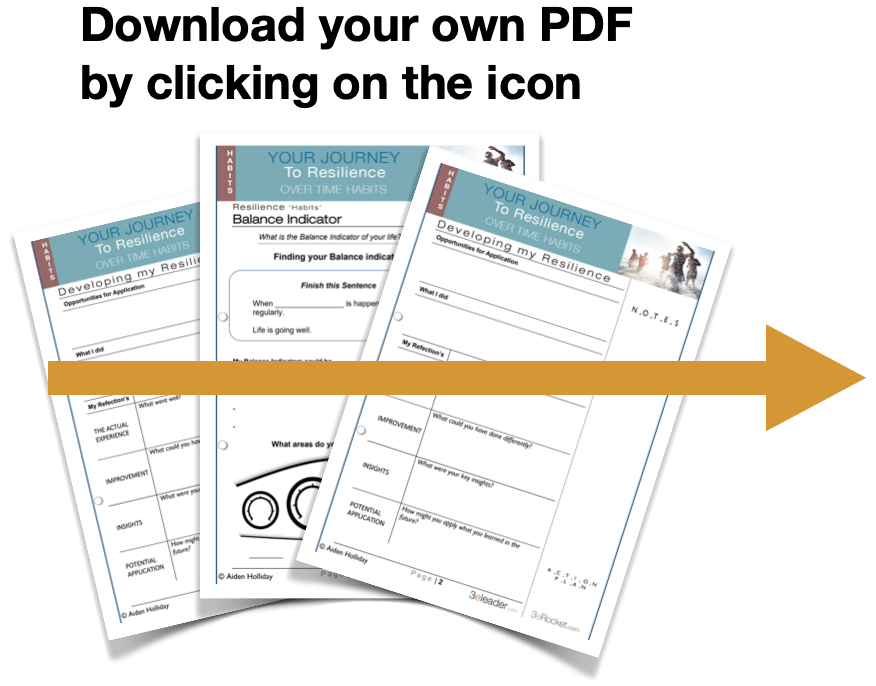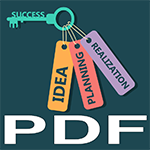
Welcome to this course on how to live a more resilient life. All of us live and work in an environment that is constantly changing, intense and unrelenting.
Your resilience refers not only to your ability to cope and adapt to crises or stressful situations. But to Thrive. Resilience refers to how you use various strategies to develop your capability to handle challenging situations. More resilient people are able to accept life changes and adapt to adversity without lasting difficulties, while less resilient people have a much harder time with stress and change.
Have you ever wondered how you can be more resilient? Well, it’s time for you to find out how.
There are SIX sessions included within the course. They are designed to help you to develop your resilience and to manage stress.
Over the six sessions, we will cover
- Practical tips on having a resilient mindset
- ‘In the moment’ strategies that can help you in a stressful situation
- ‘Resilience habits’ that would be helpful to build into your life.
Who this course is for:
- Anyone with an interest in developing their resilience.
- Anyone who experiences emotionally intense situations.
- Anyone with an interest in developing their ability to manage their emotions.
- Anyone who wants to have a deeper understanding of themself and how to work better with other people.
- Anyone with a leadership position within an organization.
Meet your Facilitators

Aiden Holliday
PRESENTER

Charl Ekstein
PRESENTER

Brenton Bai
PRESENTER
Brenton - See More
Brenton has been communicating to large audiences throughout New Zelanad and Australia since the age of 20 Building a reputation as a dynamic speaker. His ability to convey the fundamentals for both personal and business breakthrough will leave a significant impact in your organization and, at the same time, make the whole process enjoyable.
Brenton’s qualifications are in the field of strategic leadership which he applies in Performance Coaching and Strategy Facilitation.
Charl - See More
Charl is the director of Serenity Float Clinic in Hamilton.
Serenity offers float therapy, therapeutic massage and infrared sauna to help people heal holistically. It is currently one of only a few research facilities in the world adding to the body of clinical research into floating
Serenity is also the first registered ACC vendor for floating in New Zealand and Charl works alongside ACC to help formulate protocols to help treat anxiety, chronic pain, stress and promote resiliency from a holistic perspective.
Aiden - See More
Aiden’s has a passion for leadership and the psychology of peak performance. This led him to writing national qualification in strategic leadership delivered to Boards and top Management Teams. Aiden Holliday has spoken nationally and internationally in Denmark, Italy, Hong Kong, Nepal, Cambodia and Australia to audiences in excess of 3000 people.
Aiden’s qualifications include Master’s Qualifications in Leadership, Business and Neuroscience.

Resilience Foundations
Resilience is something that we all possess in life, some may be seen as being ‘more resilient’ than others, some conversely may be seen as ‘less resilient’ or maybe ‘not as resilient as somebody else’. So, if it exists inside all of us, can we develop it, improve it, and become more resilient. The answer is YES. Resilience is a habit and skill set that can be learned, practiced, and developed. Resilience has always been an interesting topic for our business. We like finding out how people develop their resilience, and how we can apply those insights to become more resilient. It is a topic that in recent years has come up a lot when as people grapple to increase their Mental Health in challenging times. For us resilience is not merely about surviving stressful situations. But how can we thrive and grow stronger because of them. Whatever your definition of resilience may be, I think it is safe to say that everybody is resilient in their own way, right? So what are the habits of resilient people.
Myths
Before we deal with the resilience habits of mentally strong people, lets cover three common myths.
Myth #1 – People Are Either Mentally Strong or Mentally Weak
There ARE NOT two categories of people – the mentally strong and the mentally weak. Instead, everyone possesses mental strength to some degree and we all have the ability to become stronger. Just like you have to keep working out to stay physically strong, mental strength requires ongoing exercise and practice.
Myth #2 – Mental Strength Means Always Thinking Positively
Building mental strength doesn’t mean you should start expecting great things to happen or that you should only think happy thoughts. In fact, thinking overly positive thoughts can be just as detrimental as thinking overly negative thoughts. Building mental strength is about training yourself to think rationally and realistically. Although we’re prone to believe our thoughts, our thoughts aren’t always true. When we’re feeling bad, our thoughts are likely to be exaggeratedly negative. On the other hand, when we’re extremely happy, we’re more likely to overestimate ourselves and our abilities. Developing mental strength increases our ability to evaluate our thoughts and develop more realistic inner monologues.
Myth #3 – Mentally Strong People Show No Emotion
Being mentally strong doesn’t mean you shouldn’t cry at funerals or gush at adorable babies just so you can appear tough. Rather than suppressing emotions, building mental strength increases our awareness of them. We make our best decisions in life when we’re in control of our emotions – rather than allowing our emotions to control us. Mentally strong people are able to recognize when their feelings are likely to lead to unhealthy behavior and they proactively take steps to regulate those emotions.
5 Habits to Consider
 Have a menu of self-care habits.
Have a menu of self-care habits.
Resilient people have a list of good habits that support them when they need it most. We can all become self-care spotters in our life—noticing those things that recharge our batteries.
Maintain a sense of perspective
A recent study on university students found that keeping a sense of perspective was a key factor to developing resilience. The key here is to keep an eye on the big picture as well as the small details. This combination of the end goal helps maintain motivation on tough days, whilst focusing on the smaller details helps maintain focus and concentration. Doing both helps develop sustainable resilience.
Viewing decisions as active choices not sacrifices
This was a consistent theme in a study on how Olympic Gold Medallists developed their resilience. By viewing their commitment as an active choice and not as a sacrifice, they focus more on keeping their motivation levels high and less on what they are missing out on. You can read more about this here.
Practice and preparation
Endurance athletes have a saying: Nothing new on race day. Meaning if you’ve prepared yourself for everything, you’ll be ready for anything. You should know well ahead of a race what you are going to eat, wear, and even think about that day. Naturally, you can’t be prepared for every eventuality, but try to be anyway. Anticipate any problems that could arise, and have a solution in mind. During a triathlon, these could include flat bicycle tires, getting your goggles knocked off during the swim, or getting blisters on your feet. Knowing you have done everything possible to get to your goal will help you mentally. When it comes to the event you are training for, you can go into it with peace of mind. Once you have that, you’ll be surprised by just how far you can go.
Believe in your ability to overcome hardships and guide your own destiny
Researcher Angela Duckworth states that having a sense of hope and optimism is a key component to developing resilience and grit. Indeed, researchers from Staffordshire University have found that if you believe you have the abilities to meet the demands of the situation, you are more likely to be in a ‘Challenge State’ (as opposed to a ‘Threat State’) and perform better under pressure. We strongly recommend checking out their work and blogs here.

Here are a couple of questions to help you become more adaptive and resilient in the midst of stress.
1) What is one thing you can do?
Many people see life as something that happens to them. They are victims of circumstances.
One of the significant things that sets highly resilient people apart from the rest is that they have a strong sense of personal control (In psychology this is called internal locus of control).
In other words, they identify what they can control and what they cannot, Then they take the most effective action by doing what they can do. This provides us with a sense of directing our lives and have a degree of control.
When you develop a higher internal locus of control, you’re enabling higher levels of confidence and calm in the face of change. So the next time you feel helpless in a situation, see if you have the choice to change or influence your circumstances, EVEN SLIGHTLY.
2) Do I choose ‘wonder’ over ‘worry’?
Most people worry when they face a challenging situation in work or life. According to the Cleveland Clinic, the average person has 60,000 thoughts per day. Of those, 95% of those thoughts repeat each day and, on average, 80% of repeated ideas are negative.
Psychologists call this the negativity bias. Highly resilient people challenge this bias by choosing “wonder over worry” when adversity hits. They take a moment to pause, step back, and be curious rather than let their thoughts affect emotions and behaviors.
This practice enables the core resilience skill of “cognitive agility” to kick in. Cognitive agility is the art and science of knowing your mind so you can choose whether to operate in default mode or adjust to make better choices. Next time you fall into worry, approach your thoughts with deep curiosity and consider alternative explanations to your thought.






